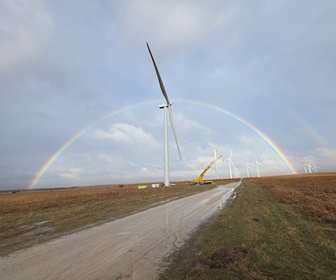With dozens of offshore wind projects in the pipeline off U.S. shores, federal agencies, states, and grid operators must immediately begin collaborative planning to identify cost-effective transmission solutions to bring that power online, according to a Brattle Group report commissioned by ACP.
The report titled The Benefit and Urgency of Planned Offshore Transmission finds that starting this collaborative planning process now will significantly reduce costs, reduce environmental and community impacts, increase grid reliability, and make it possible to achieve climate and clean energy goals in a timely fashion.
Leveraging existing studies in the United States and Europe, the study estimates that the benefits of proactive transmission planning for over 100 gigawatts (GW) of likely U.S. offshore wind generation developments over the next 2-3 decades include:
- At least $20 billion in transmission-related cost savings;
- 60-70% fewer shore crossings and necessary onshore transmissions upgrades;
- Approximately 2,000 (50%) fewer miles of marine transmission cable installations disturbing the seabed;
- More competitive procurement outcomes, increased consumer savings, enhanced reliability and grid resilience, and more timely investments in the local clean energy economy.
The study identifies hurdles to achieving cost-effective planning outcomes, but provides a roadmap with recommendations to address these challenges. These include:
- Steps to enable multi-state coordination;
- Taking advantage of available federal support and funding;
- Standardization of offshore transmission technologies;
- Improvements to the existing planning processes for onshore and offshore transmission facilities that can also address a broad range of needs beyond the offshore wind sector.
The report was prepared by The Brattle Group with contributions from DNV and input from an advisory panel of policy and industry experts. American Clean Power (ACP), the American Council on Renewable Energy (ACORE), the Clean Air Task Force (CATF), GridLab, and the Natural Resources Defense Council (NRDC) commissioned the analysis.









